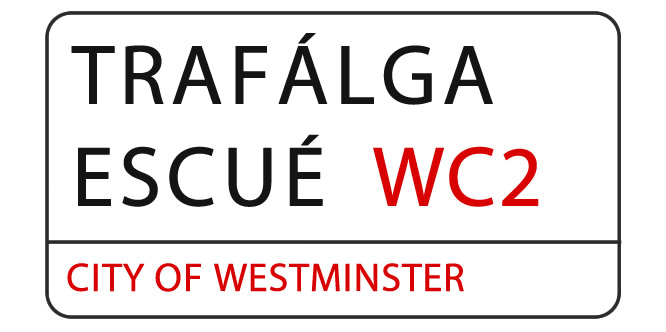Estudiar inglés en el extranjero es un modo excelente de mejorar tu nivel, al verte forzado a convivir día a día con la lengua. No obstante, tanto si te decides a venir a UK para estudiar un curso de 3 semanas como si llevas tiempo viviendo en este país, hacer un examen para certificar el nivel adquirido puede ser una muy buena idea.
En España muchos conocemos los “clásicos” exámenes de Cambridge, como el First o el Advanced, pero en realidad el abanico es mucho mayor, y hay otros exámenes que puede que se adecuen mejor a tus necesidades y a tu situación particular.
En este post, el profesor Ronan O´Donnell de la academia A2B English nos explica los diferentes exámenes que podemos realizar para certificar nuestros conocimientos en la lengua inglesa y las ventajas de cada uno de ellos.
¡¡A examinarse todo el mundo pues!! 😉
Choosing an exam
Why should I take an English exam and what exam should I choose? There are so many English exams available that it is sometimes difficult to choose. Some of the more popular exams that students want to take when they come toLondon include the Cambridge FCE/CAE, IELTS and TOEFL.
Reasons for taking these exams range from academic course requirements, work requirements or simply for a sense of personal achievement. The exams can be taken at a range of locations aroundLondonand theUK. Some of the links at the end of this article will take you to the relevant pages to see where is most suitable for you.
The First Certificate Exam(FCE) is one of the most popular exams and successful completion shows that you have achieved an upper-intermediate level of written and spoken English. The Cambridge Advanced Exam(CAE) is based on a similar format and is usually taken by students who need to achieve a higher level of English for work or study reasons. The Cambridge Proficiency Exam(CPE) is tougher again and is the most advanceCambridgeexam.
IELTS and TOEFL have some things in common. They are both usually only recognised for two years after the exam was taken. IELTS is scored on a scale of 1(no knowledge) to 9(expert user) and TOEFL on a scale of 0 – 120. Both exams are used to assess language ability by universities around the world with IELTS being widely recognised in the UK, Australia, America and Canada. TOEFL is more commonly used as a language test in America but it is also accepted in theUKandAustralia.
If you want to study at undergraduate or postgraduate level or you wish to work for a professional organisation in an English speaking country you should take the IELTS Academic exam or for more general reasons you can take the IELTS General exam. As the website states: ‘IELTS is recognised by over 7,000 organisations worldwide, including educational institutions, employers, governments, immigration authorities and professional bodies.’
While these tests can be done on paper the computer based versions are becoming very popular. All exams test your speaking, listening, reading and writing. Many free resources are available online and you can also do a diagnostic test to assess your suitability for each of these exams. Check out the following websites for further information or contact me with any questions you may have.







2 comentarios
Siempre queda la possibilidad de estudiar un curso de ESOL (English for Speakers of Other Languages.) Acabaras con un titulo reconocido solamente en el reino unido, siempre que apruebas el examen. Antes, las clases de ingles salian gratuito a todos los eurupeos. Hace unos anos lo cambiaron, PERO EN GALES NO. Sigue siendo gratuito alli, por ejemplo en Bridgend College:-
http://www.bridgend.ac.uk/english-for-speakers-of-other-languages-esol/
En Inglaterra, los que estan cobrando el paro son los que pueden matricularse en los cursos de ESOL gratuito. Ademas, se puede encontrar unos pocos ONGs que dan clases de ESOL gratuitos a los que no tienen fondos.
Por cierto, classes de ESOL y EFL son parecidos. La diferencia es que ESOL es para los que se han mudado a vivir en Inglaterra. Los profesores estan pagado por el govierno. En contrasto los cursos de EFL (por ejemplo International House) son para los que estan de visita para aprender el ingles. Todos los examenes mencionado arriba son examenes de EFL. Los examenes de ESOL son otros, y los niveles tambien tienen nombres distintos. (Por ejemplo ‘Entry 3) se aquivale a un nivel intermedio.)
Hola Shelley,
Muchas gracias por tu aporte.
Un saludo!